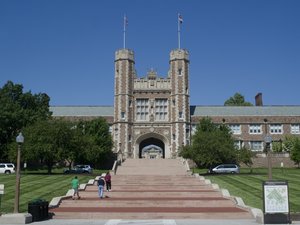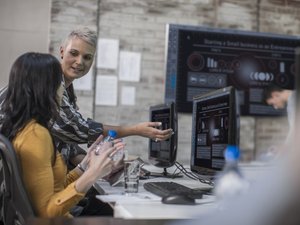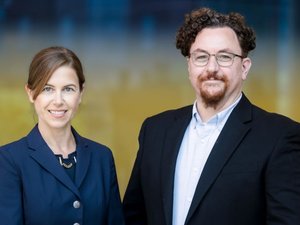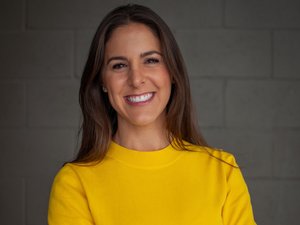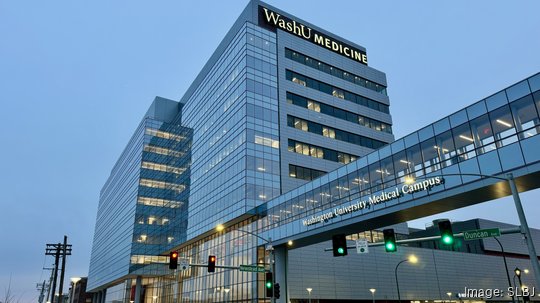
A local coalition aimed at advancing neuroscience research and commercialization in the St. Louis region is seeking millions in federal funding.
Neuro360, a coalition of post-secondary institutions, local and state institutions, businesses, health care and trade groups led by Washington University and nonprofit innovation hub BioSTL, is bidding for up to $160 million in funding from the U.S. National Science Foundation.
The money would create one of the federal agency's Regional Innovation Engines, or NSF Engines, around neuroscience research and development, but backers said having the plan for Neuro360 will lay out future industry development whether or not St. Louis gets the funds.
Executives involved in Neuro360 joined local officials to discuss the group's application at a press event Wednesday in the Cortex innovation district.
Dr. Eric Leuthardt, a neurosurgeon at Barnes-Jewish Hospital Center for Advanced Medicine and chief of the WashU School of Medicine's Division of Neurotechnology, said in an interview that neuroscience has gone well beyond treating neurological diseases because of discoveries made in the last 10 to 15 years.
"Our nervous system touches every part of our body, so it basically touches every medical disease that we can think about," Leuthardt said. "You can stimulate a nerve and affect inflammation; that can have an impact on all sorts of disease states."
That means that neuroscience can treat things beyond strokes, depression, addiction or Alzheimer's disease. "As we understand the nervous system and how the nervous system optimally performs, whether it be in the setting of plasticity, learning or memory, we can do things to improve education," said Leuthardt. "We can create policies that allow people to learn, to thrive, to be their best selves."
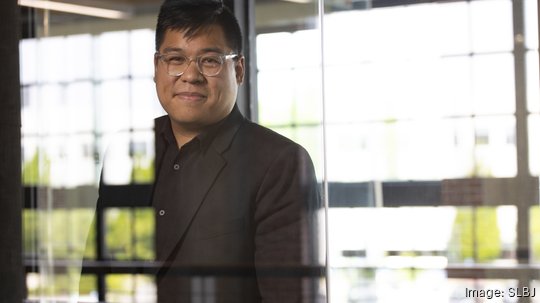
Justin Raymundo, BioSTL's vice president of innovation ecosystem-building, said the NSF wants to create Regional Innovation Engines with funding through the CHIPS and Science Act of 2022 to promote science and technology research and development outside the nation's leading tech centers. Ten engines have already been created, from the North Dakota Advanced Agriculture Technology Engine, to the Colorado-Wyoming Climate Resilience Engine and the North Carolina Textile Innovation & Sustainability Engine.
NSF Engines' strategic and implementation plans focus on cross-sector partnerships, use-inspired research and development, bringing research into production, workforce development, inclusive engagement, strategic investment, and governance and management.
Raymundo said the federal funding would help advance research "to advance discovery and allow us to commercialize it." Rather than silo research and development within different universities’ academic structures and offices of technology development, Raymundo said Neuro360's goal is to create a regional apparatus to bring research along toward maturity, linking academics to entrepreneurs, executives, capital and manufacturers to help build up companies.
Neuroscience is one of WashU's strengths – its $616 million Jeffery T. Fort Neuroscience Research Building opened in January – and Neuro360 wants to channel resources for academic research, private-sector innovation and human capital development into a self-propelling industry.
Neuro360's plan focuses on four areas, according to its website: neuroscientific technology for devices and imaging; molecular, cellular and systems biology; apps, software and computing; and public health.
Neuro360 received $1 million from the NSF in May 2023 to plan its application. It applied for the $160 million in funding this summer and will hear back this fall about whether or not it moves forward into the next application round, due in February 2025.
In remarks Wednesday, BioSTL founding President and CEO Donn Rubin warned that Neuro360 faces stiff competition for the $160 million, to be distributed over a decade. But he and others said that the strategic plan being drafted for the NSF Engines application will pay off whether or not the St. Louis group wins the money, as academic and industry leaders will have a roadmap and partnerships toward commercializing neuroscience and technology.
"That means growing local startups, training the workforce and attracting global companies to St. Louis," Rubin said.
Raymundo, for his part, noted the jobs in research, manufacturing and health care that could come about should Neuro360 win the funding, ergo a focus on classroom and workforce training for professional development through partnerships with academic institutions.
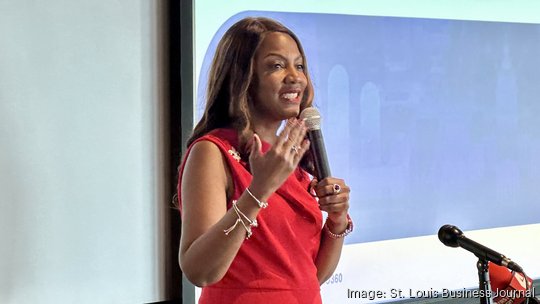
Dr. Mati Hlatshwayo Davis, director of health for the city of St. Louis, praised the application's equity components and promise for public health, saying, "We are all doing the best we can with what we have, but the best just isn't enough to keep up with the needs of diverse and vulnerable communities right here in this post-Covid, climate-changing, constantly shifting world.
"Under this really unique structure, I think there's some exciting things we can do, and now is the time to do it," she said in remarks. "Neuro360's vision of building a first-of-its-kind neuroscience ecosystem, combining the latest research with state-of-the-art technology while fostering budding entrepreneurs, is such a boon to the city's health. But it also has such potential for a thriving, inclusive, science-forward industry."
St. Louis Mayor Tishaura Jones listed the city's cultural amenities, research capacity and innovation ecosystem as means of hooking the federal funding, in addition to the potential impact of health care discoveries and economic development on people's lives.
"Equitable development is necessary to reverse decades of population decline and make St. Louis a place where families want to live and grow," she said. "I'm proud to have BioSTL as a partner in this endeavor as we work to build a safer, stronger and healthier St. Louis city."
She said after her speech that the St. Louis Agency on Training and Employment and the St. Louis Development Corp., the city's development agency, are working alongside the city Department of Health in conjunction with Neuro360 to win the federal grant money.
